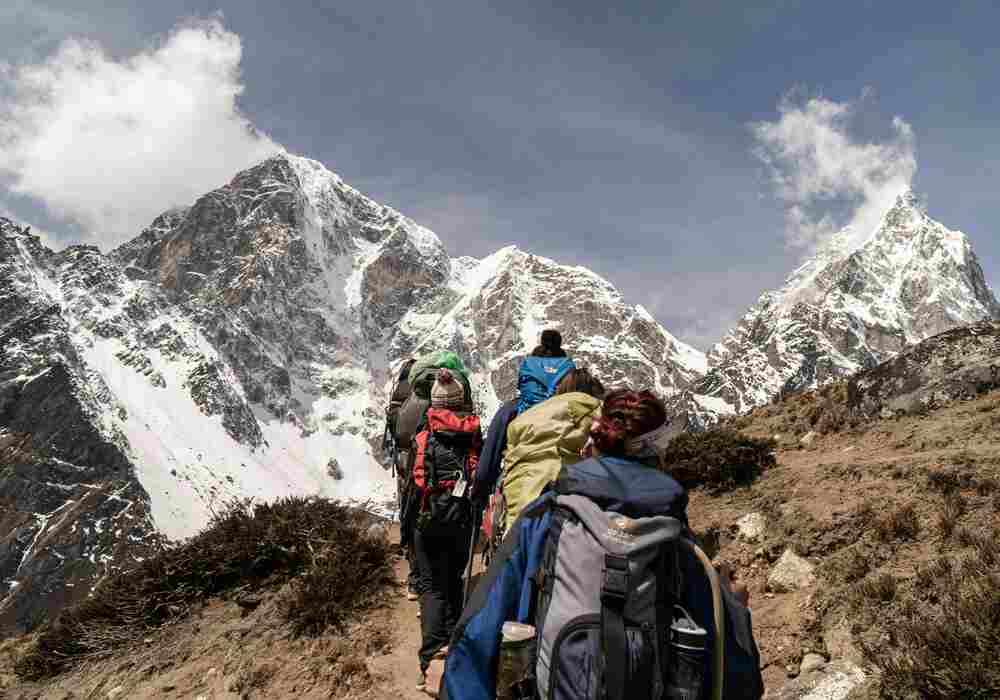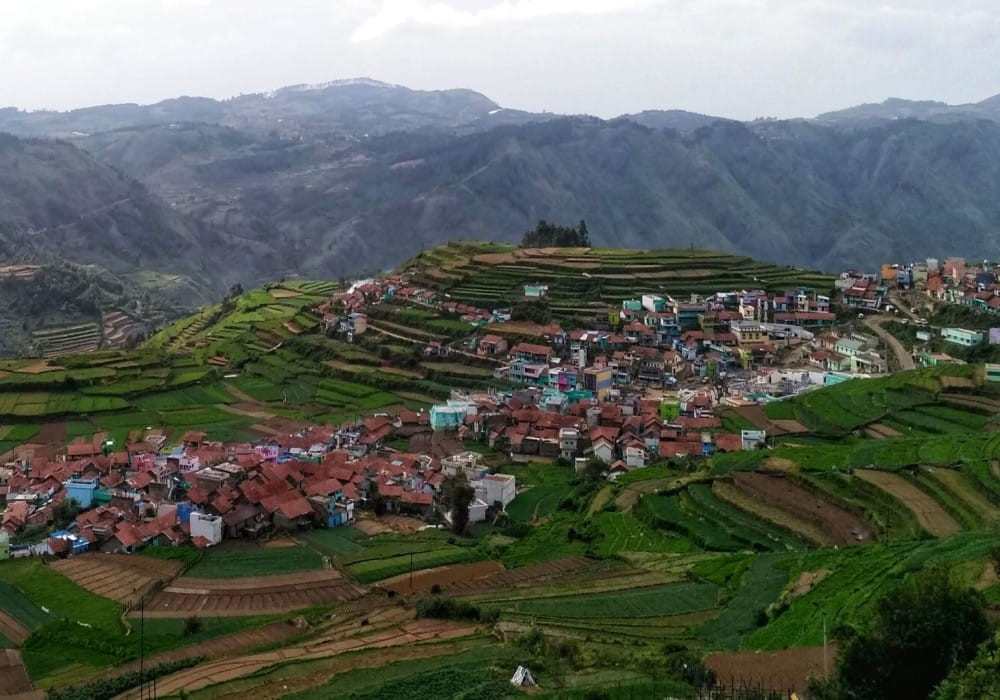
Last Updated At: 08-Sep-2023
11 Interesting Facts About Canada: The Second-Largest Country on Earth
Canada, known as the Great White North, is the second-largest country in the world and is packed with fascinating history, vibrant culture, and stunning natural landscapes. It's not just about poutine, maple syrup, or ice hockey; Canada has much more to offer than just stereotypes. It's a treasure trove of fascinating secrets, fascinating Canadian history, and cultural gems that often go unnoticed. Buckle up, eh, as we embark on an exciting odyssey to unearth some of the most interesting facts about Canada—facts as colourful as its autumn foliage and as deep as its many lakes!
List Of 11 Interesting Facts About Canada
Beneath the snow-capped peaks and maple leaf banners lies a land of intrigue – Canada, where polar bears and grizzlies play neighbourly games, and you can send mail to Santa Claus year-round!
- The Land of Lakes
- World’s Longest Coastline
- The Northern Lights
- A National Love for Hockey
- Oldest Rock Found In Canada - Canada's Natural Wonders
- World’s Largest Skating Rink Found in Canada
- Canada Is The Highest Producer of Ice Wines
- The Invention of Insulin
- Popular Hawaiian Pizza First Made in Canada
- "Yonge Street" Is The Longest Street In The World, Found In Canada
- With A Global Share of 10.4%, Canada Is The Third-Largest Holder of Oil Reserves
1. The Land of Lakes
Canada is often associated with its abundance of natural resources, but one that stands out is its lakes. This includes some of the largest freshwater lakes globally, like the Great Lakes, Lake Winnipeg, and the Great Slave Lake. The country also hosts a range of smaller lakes, contributing to its rich biodiversity.
2. World’s Longest Coastline
If you were to walk around the edge of Canada's coastline, it would take you over four years to complete the journey, assuming you walked 12 hours a day without any breaks. With a coastline stretching over 202,080 km, Canada boasts the world's longest coastline, touching the Atlantic, Pacific, and Arctic Oceans.
3. The Northern Lights
Canada's reputation as a prime destination for witnessing the mesmerising Northern Lights, or Aurora Borealis, is nothing short of legendary. The country's vast northern expanses, particularly in places like the Yukon, Northwest Territories, and Nunavut, offer some of the most breathtaking displays of this natural wonder.
4. A National Love For Hockey
Canada's passion for hockey is more than a mere pastime; it's an integral part of the nation's cultural fabric. From frozen ponds to massive arenas, the love for the sport runs deep in the Canadian soul. Every winter, communities across the country come alive with the sound of skates carving into ice and the echoes of cheers. The sport's history is rich, with legendary players like Wayne Gretzky and Maurice Richard becoming national heroes. Whether it's backyard games or professional matches, hockey unites Canadians, transcending boundaries and weathering time, cementing its status as Canada's beloved national game.
5. Oldest Rock Found In Canada - Canada's Natural Wonders
The Canadian Shield stands as a living testament to Earth's ancient past, harbouring some of the planet's most ancient rocks within its rugged expanse. These geological relics, dating back an astonishing 3.96 billion years, offer a window into the primordial history of our world. What sets the Canadian Shield apart is its remarkable geological stability, which has shielded these ancient rocks from the destructive forces of time. These rocks are not just past records; they are the foundation upon which our understanding of Earth's geological evolution is built. As such, the Canadian Shield holds a special place in the hearts of geologists and offers a profound connection to the distant epochs that shaped our planet.
6. World’s Largest Skating Rink Found In Canada
Canada, a country renowned for its passion for winter sports, boasts a remarkable claim to fame—the world's largest skating rink. Nestled in the heart of Ottawa, the nation's capital, the Rideau Canal Skateway is an iconic frozen waterway that transforms into an enchanting winter wonderland each year. Stretching over 7.8 kilometres (4.8 miles) in length, this frozen marvel meanders through the city, offering a one-of-a-kind skating experience against the backdrop of Ottawa's historic architecture. The Rideau Canal Skateway is a testament to Canada's enduring love affair with winter, where residents and visitors can glide through the heart of a Canadian city, creating lasting memories and embracing the true essence of the Great White North.
7. Canada Is The Highest Producer of Ice Wines
Canada, often celebrated for its pristine natural landscapes and diverse culinary traditions, holds a prestigious title in the world of winemaking — it is the highest producer of Ice Wines. This exquisite and rare type of wine is a testament to Canada's extreme winter temperatures, particularly in regions such as Ontario's Niagara Peninsula and British Columbia's Okanagan Valley. When these grapes are harvested and pressed, the frozen water content remains behind as ice crystals, resulting in a concentrated, intensely sweet juice. Canadian Ice Wines have earned international acclaim, garnering awards and recognition, and have become a symbol of the country's winemaking prowess, all while showcasing the unique character of Canada's cold climate terroirs.
8. The Invention of Insulin
Canada has made significant contributions to global healthcare, one of which is the discovery of insulin. In 1921, Frederick Banting and Charles Best discovered insulin at the University of Toronto. This breakthrough has since been instrumental in the treatment of diabetes, saving countless lives worldwide.
9. Popular Hawaiian Pizza First Made In Canada
The popular Hawaiian pizza, a beloved classic on menus around the world, might surprise many by its place of origin — it was first made in Canada. This delightful culinary creation can be attributed to Sam Panopoulos, a Greek immigrant, and his brothers, who, in 1962, were running the Satellite Restaurant in Chatham, Ontario. The name "Hawaiian" was chosen not because of any direct link to Hawaiian cuisine but rather due to the brand of canned pineapple used. The Hawaiian pizza's sweet-and-savoury contrast remains a subject of culinary debate and a testament to the delicious innovations that can emerge from the quirky Canadian culture food scene.
10. "Yonge Street" Is The Longest Street In The World; Found In Canada
Yonge Street is 56 kilometres (35 miles) long and is the longest street in the world that is entirely in one city. It was originally intended to be a military road but quickly became a major transportation route for settlers and merchants. Whether you are a tourist, a resident, or a business owner, Yonge Street is a place you want to explore.
11. With A Global Share of 10.4%, Canada Is The Third-Largest Holder of Oil Reserves
Canada stands as a formidable player in the global energy arena, holding the esteemed position of being the world's third-largest holder of oil reserves, with a substantial global share of 10.4%. Canada's oil reserves are not merely an economic asset but also a strategic one. They are the cornerstone of the nation's energy security, affording self-sufficiency in meeting domestic energy needs and reducing reliance on foreign oil sources. Moreover, these reserves grant Canada a pivotal role in the international energy market. Canada's oil reserves continue to be a vital part of the energy mix, ensuring the nation's enduring significance in the ever-changing world of energy.
From its vast landscapes and rich history to its contributions to science and global culture, Canada is a fascinating country that defies easy categorisation. Whether you're a solo traveller, a couple, or a family, Adotrip caters to all your travel needs with their well-versed expertise and passion for creating memorable experiences.
With us, nothing is far!
Book Canada Tour Packages
FAQs About Interesting Facts About Canada
Q1. What are some unique Canadian wildlife species?
A1. Canada is home to many unique wildlife species, including the beaver, moose, polar bear, wood bison, eastern wolf, Vancouver Island marmot, Pacific walrus, beluga whale, and Atlantic puffin. These animals are found nowhere else in the world and are an important part of Canada's natural heritage.
Q2. How many time zones does Canada span across?
A2. Canada spans across six time zones, from Newfoundland Time in the east to Pacific Time in the west. This vast country covers a wide geographic area, leading to the need for multiple time zones.
Q3. What is the origin of the name "Canada"?
A3. The name is taken from the word "Kanata". It means "a village" or "settlement". The name eventually came to be used for the entire region of New France and eventually for the country of Canada.
Q4. Which Canadian province has the highest number of lakes?
A4. The Canadian province with the highest number of lakes is Ontario. It's known for its abundance of lakes, including the Great Lakes, and thousands of smaller ones scattered throughout the region.
Q5. What is the significance of Canada's national symbol, the maple leaf?
A5. The maple leaf was adopted as the national symbol in 1965 and represents Canada's diverse forests, the changing seasons, and the nation's commitment to peace and unity.
--- Published By Adotrip
Latest Blogs

Long Weekends In India 2025 - List of Holidays

Kazakhstan Travel Guide 2025: Affordable Luxury, Visa Free E...

Think Ayodhya is Just Temples? Discover Its Hidden Artistic...

Why Azerbaijan is the Best Budget Friendly Alternative to Sw...











.png)
 Dubai
Dubai Malaysia
Malaysia USA
USA





